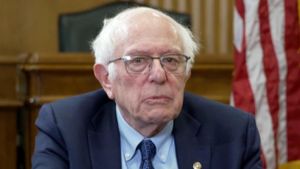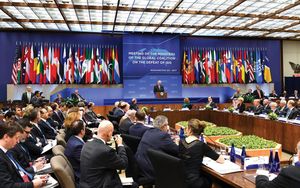Campaigning for the Delhi Assembly Elections 2024 has reached its peak as leaders from various political parties engage in fierce verbal battles, soliciting public support through dramatic accusations and personal attacks. The stakes are high as they aim to sway the approximately 15.5 million eligible voters as election day approaches on February 5.
Congress party leaders, including Rahul Gandhi, President Mallikarjun Kharge, and General Secretary Priyanka Gandhi, have ramped up their efforts to unseat the Aam Aadmi Party (AAP), making strong allegations against its chief, Arvind Kejriwal. During rallies held across the city, the Congress leaders emphasized their past achievements and criticized Kejriwal for alleged corruption and broken promises.
Mallikarjun Kharge, addressing the crowd, accused Kejriwal of spreading lies to defame the Congress party. “Kejriwal tried to defame Congress by telling lies. Whatever Delhi achieved, it was during the time of the Congress and Sheila Dikshit ji,” he stated, asserting the party's pivotal role in developing Delhi's infrastructure.
Rahul Gandhi escalated the attack, targeting Kejriwal over the deteriorated condition of the Yamuna River. He held up a bottle of murky water, dramatically questioning the AAP leader’s failure to eradicate pollution. “Kejriwal had promised…that you could drink Yamuna water. Drink a glass of it and see what happens — we’ll meet at the hospital,” he said, sharping his critique on Kejriwal's broken pledges.
Priyanka Gandhi weighed in by alleging misuse of public funds by Kejriwal, linking it to his opulent residence. “Nehru ji built AIIMS, where people still go for treatment today. Kejriwal built a Sheesh Mahal worth crores... using public money,” she emphasized, pointing out disparities between the past government's contributions and AAP's perceived extravagance.
On the other side of the political spectrum, Prime Minister Narendra Modi took center stage, launching his own volleys at the AAP during his final rally on Sunday. He labeled the AAP’s leadership as disintegrative, citing the recent exodus of eight former AAP MLAS to the BJP as indicative of public disillusionment with the party. “The broom’s straws are falling apart even before the voting begins. The leaders of AAP are leaving it. They have realized how angry the people are with AAP on the ground,” Modi stated, portraying AAP as increasingly isolated and out of touch with constituents.
Modi, reflecting on the recent budget presented to Parliament, described it as the “friendliest budget” for the middle class, hoping to sway voters with promises of economic relief. “Our government has completely reduced the income tax to zero on income up to ₹12 lakh. This will save thousands of rupees of middle-class people,” he announced, promoting the BJP’s narrative of fiscal responsibility.
Despite the BJP's aggressive campaigning, AAP officials defended their record, asserting their commitment to public welfare initiatives. AAP responded to the BJP's claims with their own public statements, highlighting measures such as free electricity and water, deeming it effective governance. “Their [BJP’s] election campaign revolves around attacking and hurling abuses at Arvind Kejriwal,” they contended, positioning their governance model as beneficial for the people of Delhi.
Modi, not shying away from the controversy, also addressed the concerns raised by the AAP about the reckless management of the government, dismissing such fears as rumors. “Those living in Sheesh Mahal do not see the poor’s slums...mark my words, not a single slum will be demolished,” he reassured voters, defending the BJP’s commitment to socio-economic housing initiatives.
Looking at these developments, Rahul Gandhi underscored the absence of diverse representation within Kejriwal's political team. “There are nine people. No one from the Dalit, OBC, or Muslim community is there,” he pointed out, raising questions about the AAP's inclusivity and alignment with historically underrepresented groups.
This multi-pronged attack on AAP highlights the competitive environment as the elections draw near. Each party is trying to not just position itself for victory but is also doing its best to depict the failures of the opposition. With campaigning officially concluding on February 3, these final moments are likely to be relentless as each party seeks to lock down its voter base.
With the echoes of these gathered sentiments, the atmosphere is charged, and many are left pondering which party will claim power as the votes are counted on February 8.



